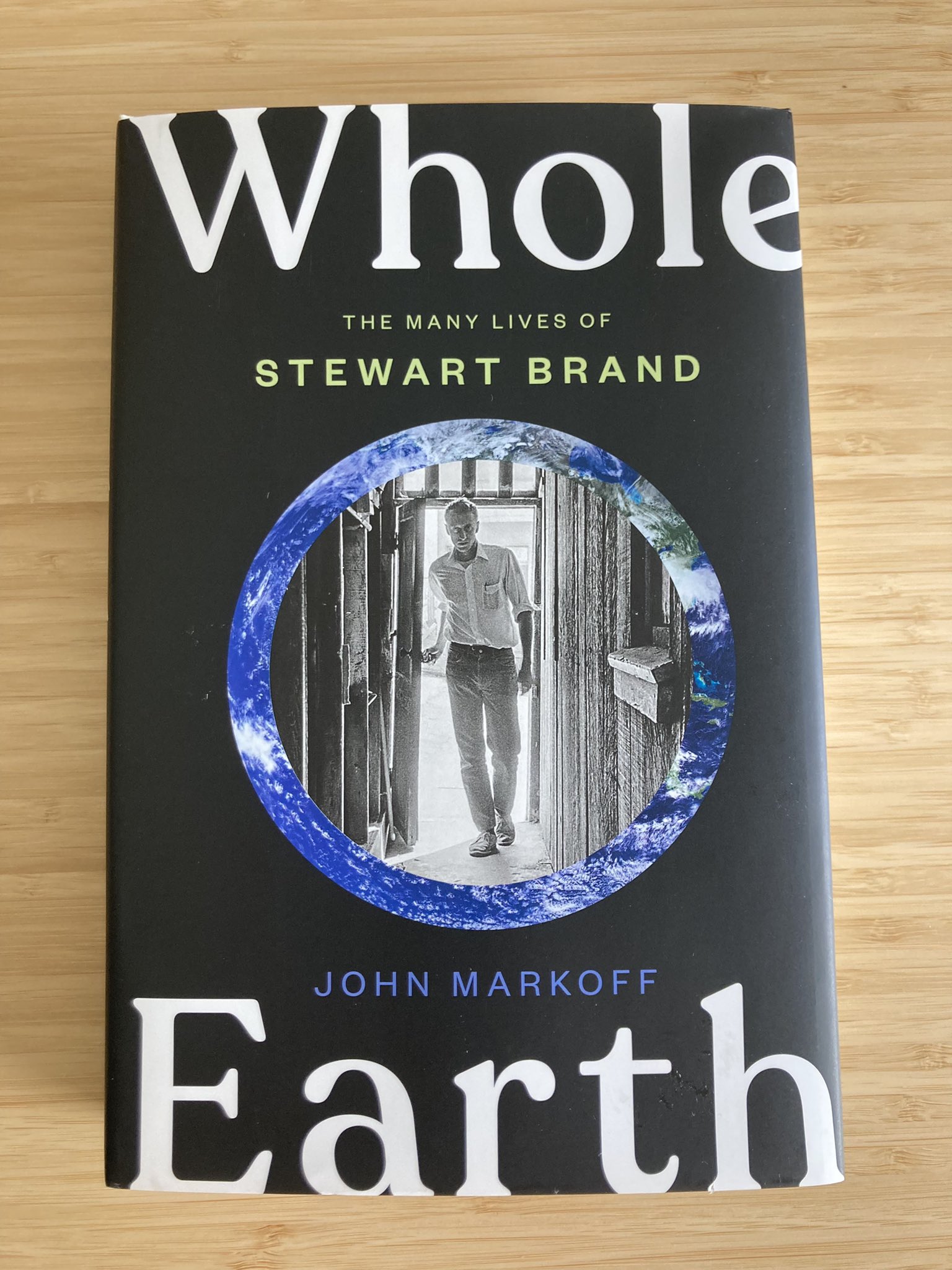Hi I wrote a book!
It's called Working in Public, and it's the story of modern open source and its implications for online communities and the creator economy.
Now available for pre-order on Amazon:
Nadia Asparouhova’s Tweets
In 2020, & I began a 2-month project to write: "how would we fund science?"
2 years & 40,000 words later, it's become: "how can the culture & institutions of science actually change, and ultimately become self-improving?"
Our answer: scienceplusplus.org/metascience/in
26
228
848
Show this thread
Founders and technologists should actively tell their own stories and not leave it to outsiders with their own (very different) agendas.
Technology is where it's at these days, with stories very much worth recording for the future. Nobody else is going to get it right.
Quote Tweet
1/ Big announcement: we've been working with director Greg Kohs on a documentary about cryptocurrency and Coinbase over the last three years, and it will be coming out this Friday on Amazon Prime/iTunes/YouTube etc.
See the trailer here: youtu.be/OXK5XKSxD1E
Show this thread
19
34
311
I recorded a new Ideas Machines podcast with about ... Idea Machines!
Idea machines, of course, being her framework around societal organisms that turn ideas into outcomes.
We also talk about the relationship between philanthropy and status, public goods and more.
4
6
38
Show this thread
A conversation about technological literacy, agency, and our future relationship with our tools with and
1
7
44
Show this thread
A beautiful upcoming salon based on the recent piece by who will join us as special guest!
Hosted by the great duo of and ❤️
Come join the discussion:
1
6
21
"I am not sure anyone else cares about this level of detail," she said.
"If our readers don't want to wade through a 3-page infodump about metabolic pathways then they don't deserve to be happy," I told her.
9
7
156
how do we teach more of whatever this is
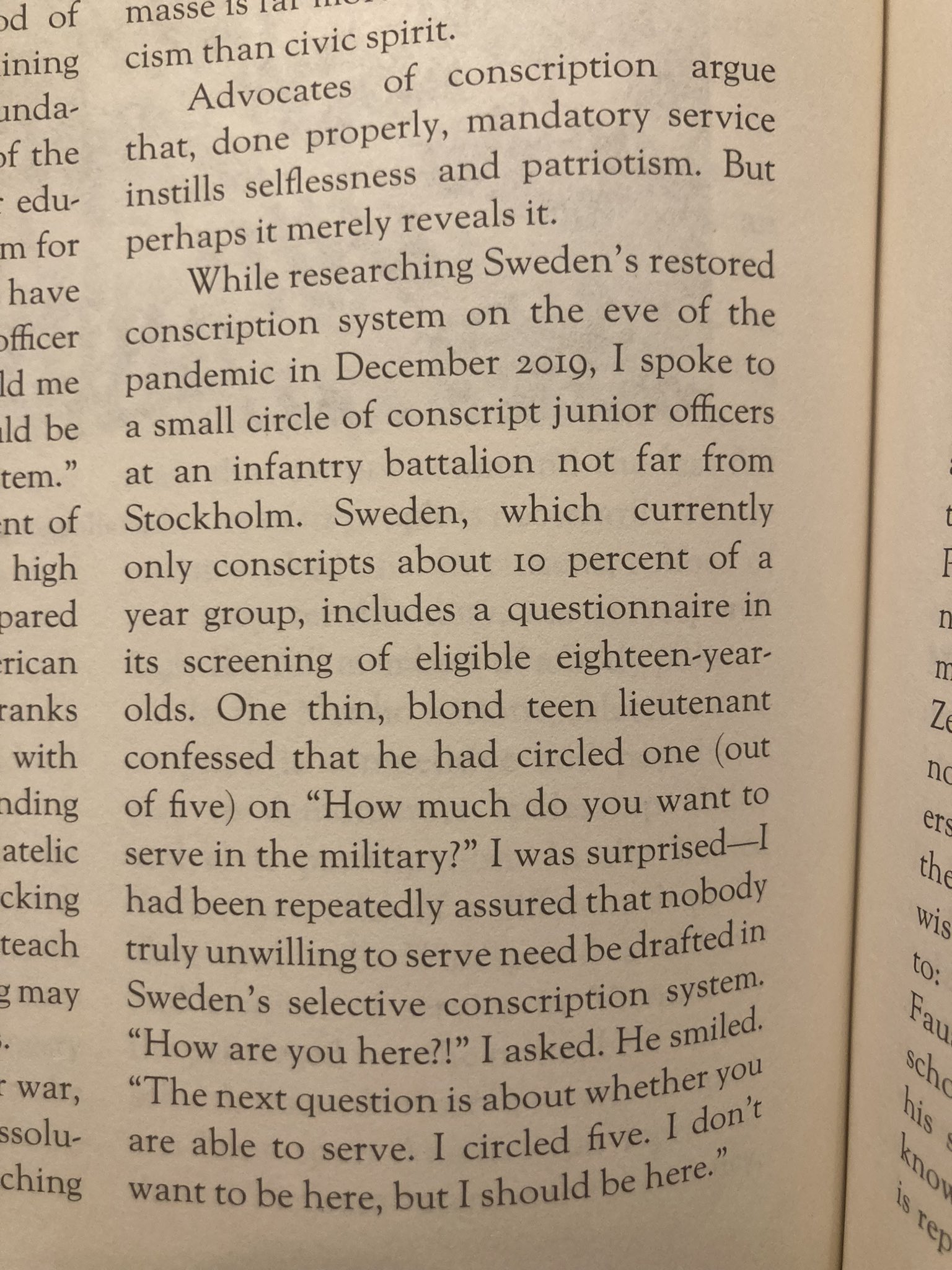
2
3
28
Here is my conversation with
"If venture capital is risk capital for private goods, philanthropy is risk capital for public goods"
We talked about different perspectives on public goods, and the second-order effects of wealth booms in tech/crypto. Links below.
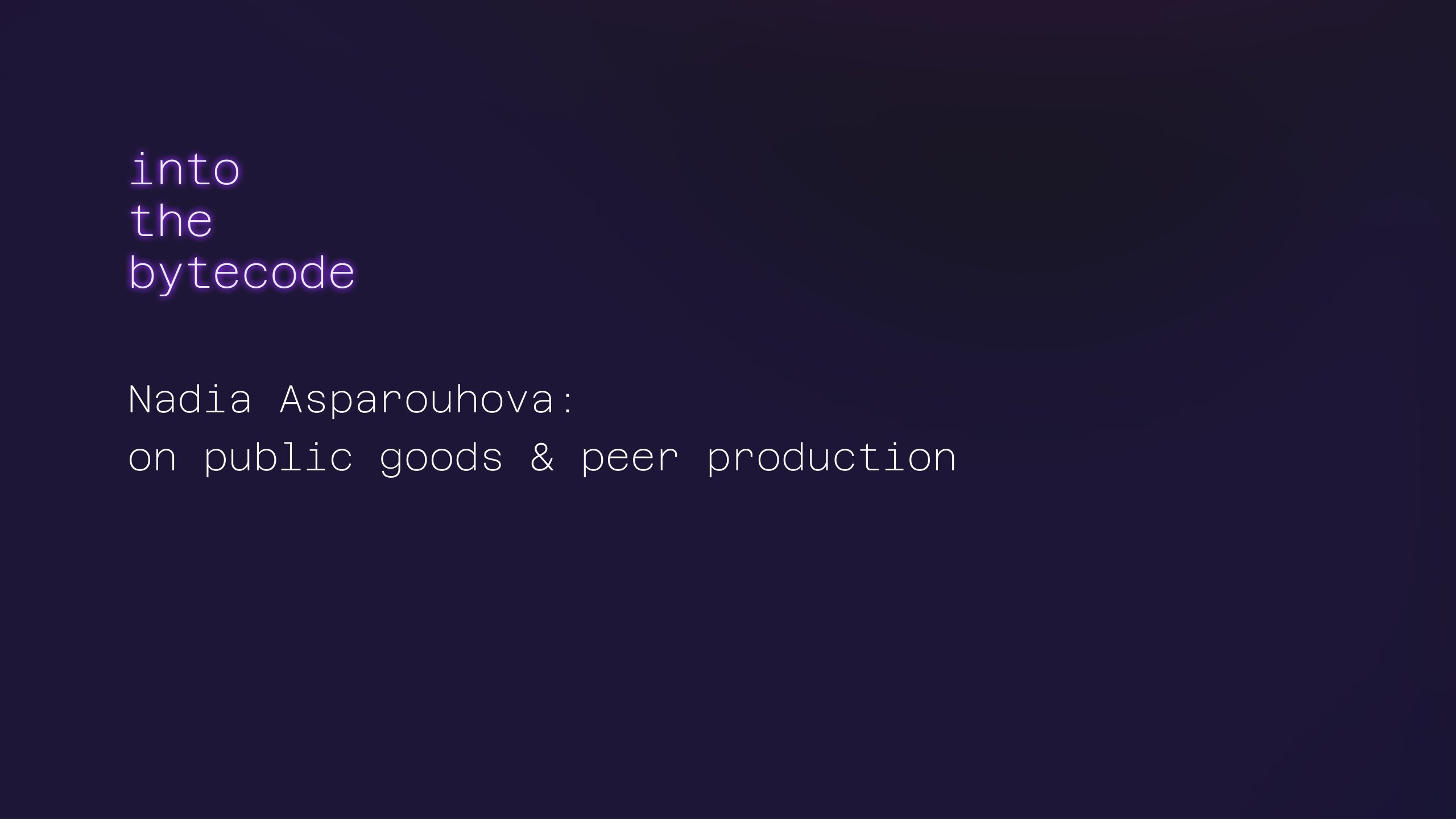
6
14
67
Show this thread
And in this case, I’d strongly encourage those selecting an NFT license to consider the historical precedent set by OSS licenses and Creative Commons, the creative output it has enabled, and whether they want to uphold that moving forward.
2
1
3
Show this thread
I continue to be insanely impressed by a16z’s contributions to crypto. And I think these licenses are generally a positive development. But the laws isn’t meant to be ironclad: it’s an opportunity to provoke civil discussion.
1
2
Show this thread
I find this new precedent to be especially curious in a crypto context because a16z’s stated goal is that “no single person can manipulate these systems for their own benefit or affect them with a moral judgment.” But hate speech is *always* determined subjectively.
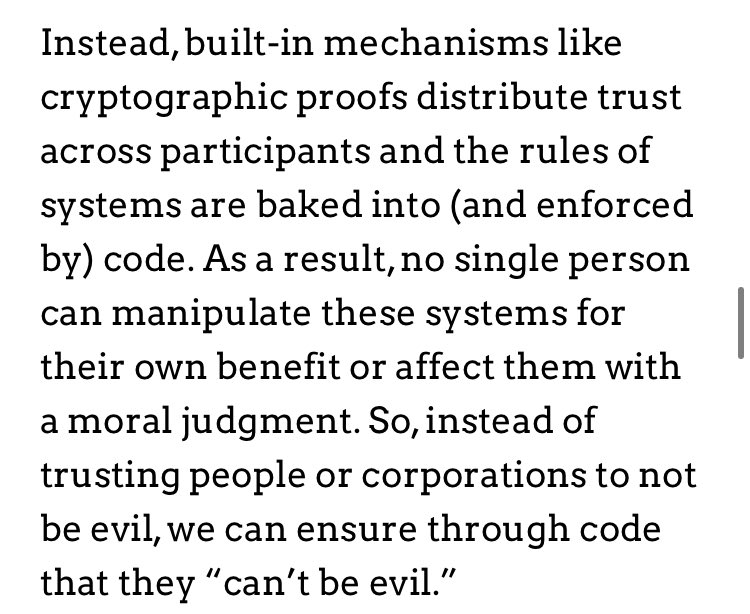
1
3
Show this thread
IMO upholding this norm is part of what it means to be a creator, even when it’s difficult. Sometimes people remix your ideas in ways that suck, but trying to control it subjectively is bad for the public domain. (Imagine if doctors could choose who to treat, for example.)
1
4
Show this thread
Creative Commons, which is referenced by a16z crypto in their post, also does not have a hate speech termination clause.
1
1
Show this thread
That norm has been challenged in recent years. In 2018, a prominent OSS developer tried to amend an MIT license to prevent ICE (US immigration and customs enforcement) “collaborators” from using their project. The core team reverted this change.
1
1
Show this thread
For historical context:
OSS licenses became more standardized in the late 1990s to encourage sharing and remixing. Both the FSF’s “four freedoms” and the OSS Initiative firmly upheld that they should not restrict use for any reason. All major OSS licenses follow this precedent.
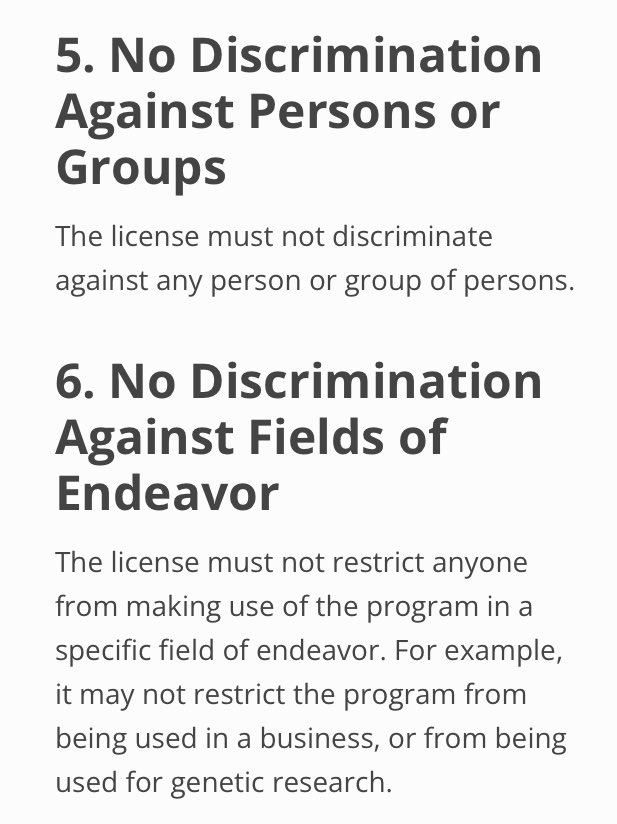
1
1
3
Show this thread
The inclusion of a “hate speech termination” clause is a curious new precedent for a16z crypto’s NFT licenses.
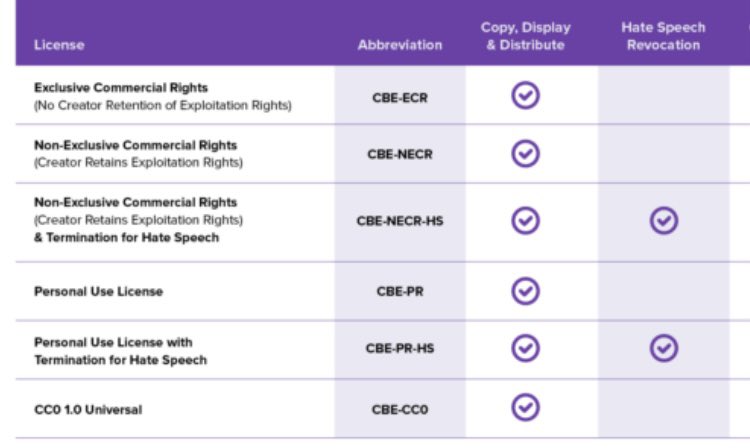
Quote Tweet
1/ Today we’re thrilled to be launching a slate of open sourced “Can’t be Evil” NFT licenses. These licenses are designed specifically for NFTs and were inspired by 20-plus years of work by the Creative Commons. a16zcrypto.com/introducing-nf
Show this thread
1
6
12
Show this thread
I wrote about why some social movements have antinatalist outcomes, and the role of personal agency:
1
10
46
ay! just published a big report otherinter.net/research/crypt
It's about crypto philanthropy. Just as much as the research was born out of the desire to objectively document an emerging scene, it was also spawned by the need to personally reckon with why I spend time around crypto
6
12
64
Show this thread
It's the closest thing writers have to functions or variables. Sometimes you need to build abstractions.
5
5
50
Show this thread
Had an excellent conversation with Nadia Asparouhova do listen/read 👇🏽
Future of philanthropy, science funding, family stories and being (ex)veggie.
1
3
14
Notes on Effective Altruism (EA): michaelnotebook.com/eanotes/
34
122
503
Show this thread
If academics want their research taken seriously they shouldn't hide it in a journal, they should publish their write-up and code somewhere that's subject to serious peer review, like a blog.
34
202
1,641
this is the right way to think about algorithms. always surprised by how ppl are oddly defeatist about technology
Quote Tweet
The TikTok algorithm is so good you can intentionally train it like it’s your pet.
Show this thread
2
21
179
Really enjoyed this account of Ukraine written by my friend Matt, who's neither a journalist nor a soldier, just a curious person who likes to learn firsthand. Part travel journal, part ethnography.
1
12
I wrote about idea machines: decentralized networks of funders, thinkers, and operators that turn ideas into action, using effective altruism as a blueprint.
19
62
284
i've got a new last name!
13
5
397
the clouds were
inescapable and
omnipresent
back then
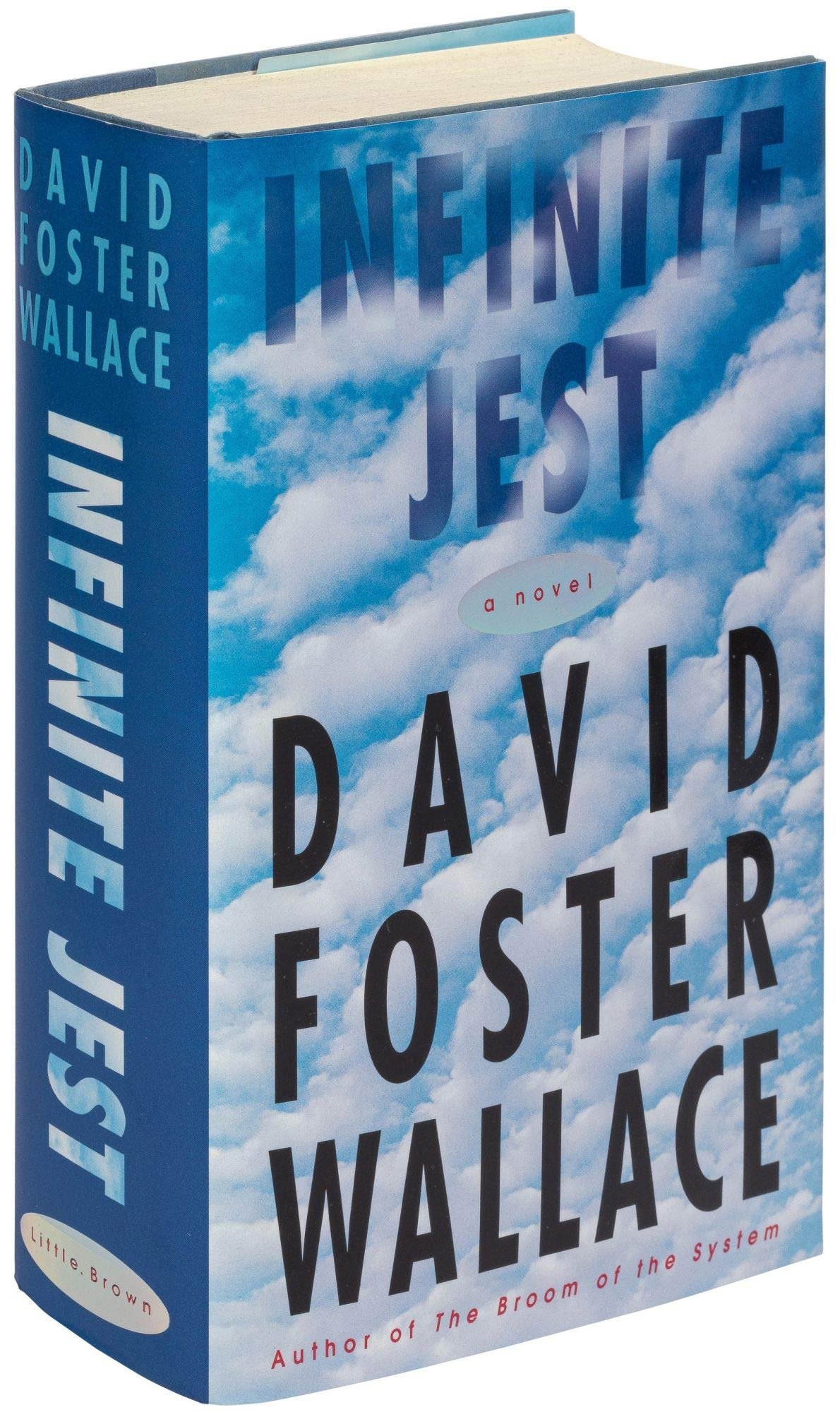



6
51
262
Enjoyed recording this TiB episode with the excellent on how tech wealth thinks about philanthropy. There’s a big shift happening with important implications for science, culture, politics and more:
tib.buzzsprout.com/1597213/102817
1
3
16
Show this thread
Jon von Neumann on why poker is a game of strategy and chess isn’t
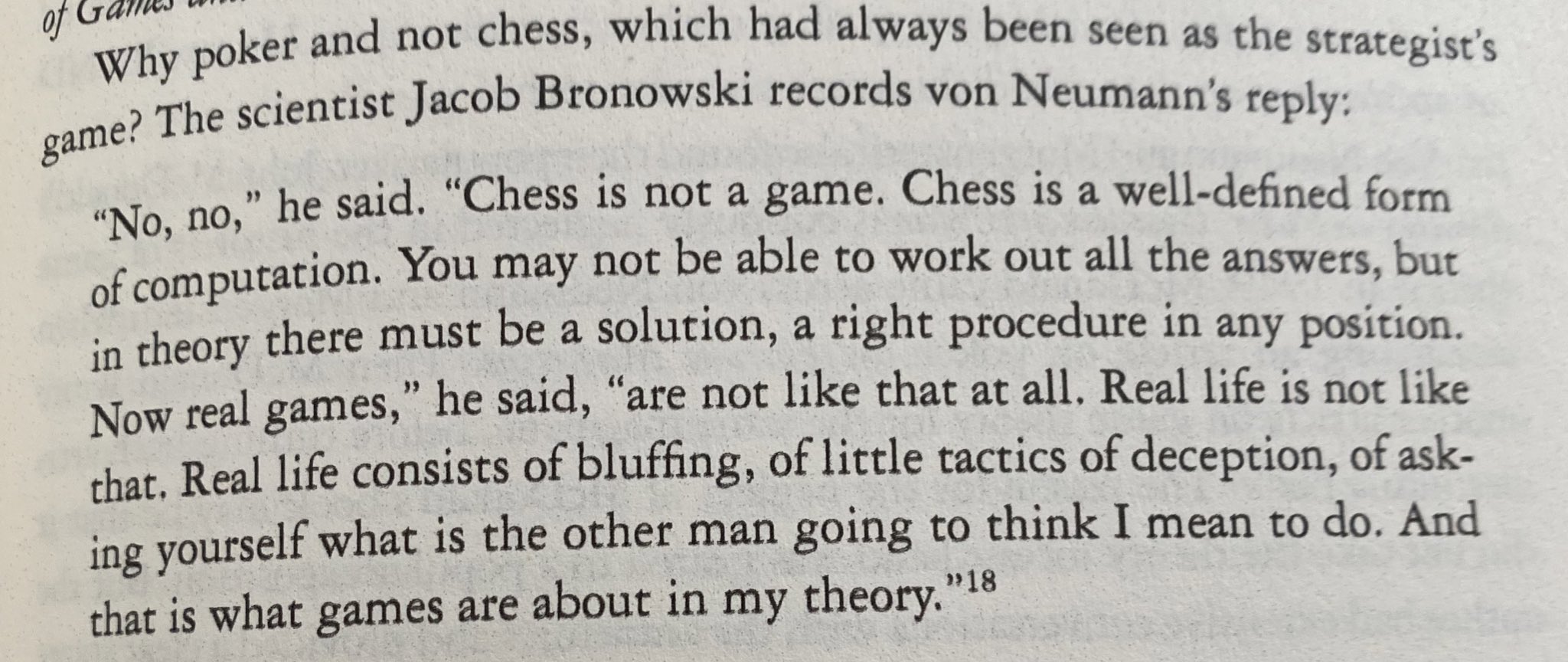
69
557
3,322
I think this could be one of the most important books of our generation, for reasons I'll write about at some point, but briefly...
Hegemony is migrating from British empire -> America -> digital state, and we've barely started to understand what that next phase will look like.
2
2
32
Philanthropy is often misunderstood as charity, but historically = risk capital for public goods (just as venture capital is to private goods)
Tech + crypto are learning to wield this influence, and I want to write about it from a macro, ethnographic lens. More to come!
3
37
Show this thread
A bit more on what I've been up to: researching how tech and crypto wealth will shape our new cultural institutions nayafia.substack.com/p/out-of-the-v
(thx to Emergent Ventures for the grant!)
10
16
127
Show this thread
I wrote a case study about how science funding has changed in tech over the last ten years, and why there are suddenly so many new science initiatives:
24
78
236
Google has not founded a new university. But AFAICT Google's research division (+ Brain and DeepMind) has more PhD-level researchers than Princeton (=1000), a decent amount of research freedom, and good job security (but not tenure).
28
143
1,563
Show this thread
A major cultural divide bw web 2.0 vs. today: the idea that we can fund content by creating scarcity on production, not consumption side.
- Consumption = public good (freely available)
- Production = club good (limited access)
Paywalls, subs are focused on limiting consumption
Quote Tweet
a lot of people seem to miss that the entire point of NFTs is to make content FREE while making ownership scarce.
nobody is forcing you to pay for an NFT, you can still enjoy it FOR FREE alongside everybody else.
you like my music? you can have it for free.
Show this thread
3
6
46
TIL we got married on the blockchain
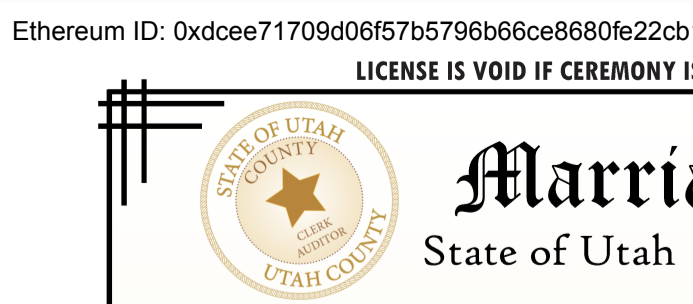


41
120
821
3
48
I like this distinction on Arc Institute's website between two behaviors, both of which have their place at different times:
* Curiosity-driven work (“to understand X”)
* Goal-oriented work (“to solve X”)
Quote Tweet
I've long been interested in new ways to organize science and enable curiosity-driven discovery. Today, in partnership with @Stanford, @UCBerkeley, and @UCSF, we're excited to announce Arc Institute, a new undertaking in this vein: arcinstitute.org.
Show this thread
1
9
116




























